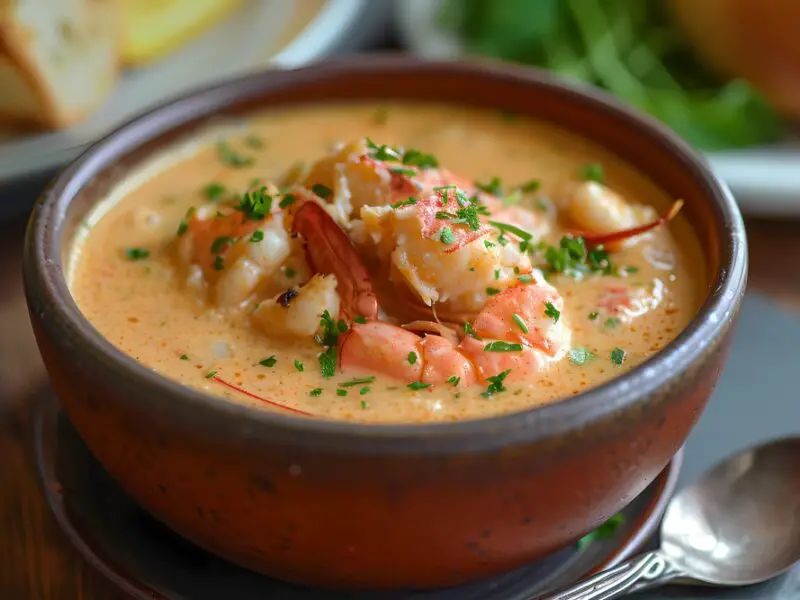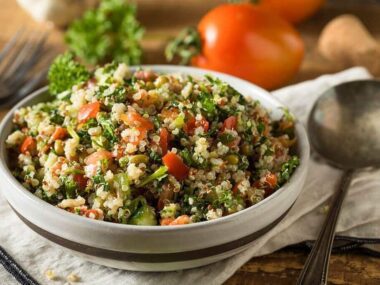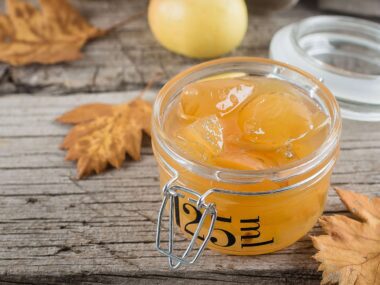There’s nothing quite like the irresistible taste of the ocean brought to your dishes by the luxurious lobster base. Its rich and complex flavors transport your taste buds straight to the coastline. However, not everyone has the option to incorporate lobster into their cooking due to dietary restrictions or preferences. This is where the best substitutes for lobster base come in.
Lobster base is a concentrate made by simmering lobster shells and adding aromatic vegetables to extract the sweet and savory essence of the sea. It’s commonly used in recipes like bisques, stews, and pasta sauces to infuse dishes with mouthwatering lobster flavors. But if lobster is not an option for you, do not fret. There are alternative ingredients that can mimic lobster base’s taste without using the actual shellfish.
In this blog post, we will explore the best substitutes for recreating lobster base’s luxurious flavors without relying on lobster itself. From vegetable and mushroom broths suitable for vegans and vegetarians to fish sauce, shrimp paste, and meat broths, we’ll cover a variety of options to suit different diets and palates. No matter what substitute you choose, the goal is to enhance your dishes with lush layers of umami and oceanic tastes without using lobster. So read on to discover the best make-shifts for lobster base depending on your culinary needs and preferences. Bon appétit!
Best Substitutes for Lobster Base
1. Vegetable Broth/Bouillon
When it comes to substituting lobster base in a vegetarian or vegan-friendly way, vegetable broth is one of the best options. Made by simmering an assortment of veggies together, vegetable broth offers savory and umami flavors without using any meat or seafood. Common ingredients include onions, carrots, celery, mushrooms and herbs like parsley and bay leaves. The broth captures the vegetables’ natural assets to bring rich and complex tastes to your dishes.
While it doesn’t have the luxurious depth of actual lobster stock, the roasted, earthy notes of vegetable broth make it a worthy stand-in for non-meat eaters. The broth enhances sauces, soups and stews with mouthwatering savoriness without compromising the diet. Plus, vegetable broth is widely available in stores, both in carton and cube forms, making it a convenient substitute.
2. Mushroom Broth
For an earthy twist on lobster base, mushroom broth is an umami-rich substitute suitable for vegans and vegetarians. Rather than using a single mushroom variety, mushroom broth employs a variety of fungi to create a complex flavor profile rivaling the luxuriousness of lobster stock.
Common mushrooms used include shiitake, oyster, cremini and portobello. They are slowly simmered with aromatic veggies like onions, garlic and herbs. This long cooking process extracts the robust, meaty essence of the mushrooms into a rich broth.
The blend of different mushroom tastes results in a broth with layered savory notes—woodsy, mineral and slightly sour flavors abound. Its robust flavor lends depth and texture when used in sauces or poured over grain dishes and risottos.
While mushroom broth has distinct earthy overtones compared to the brininess of lobster, its savory punch enhances other ingredients. The broth allows recipes to shine with lobster-style lushness, even for vegan or vegetarian diets where shellfish is not an option. Its natural umami makes it a reliable and full-flavored substitute to lobster base.
3. Fish Sauce
Originating from Southeast Asia, fish sauce is made from fermented fish and brings an intense savory flavor to the table. While it contains seafood like lobster base, it can still perform as a substitute for those wishing to avoid eating whole crustaceans.
Fish sauce is produced by combining small fish with salt water and allowing them to ferment. This process creates a golden brown liquid crammed with umami. In terms of taste, it has characteristic notes of funkiness with an enticing sour and slightly sweet profile.
When used to substitute for lobster base, fish sauce should be added sparingly—a teaspoon or two is all that’s needed to enhance a dish. Its potency means it can overpower if over-applied.
The sauce adds an extra dimension of savory depth to recipes like curries, soups, and noodles. While it doesn’t mimic lobster perfectly, fish sauce brings a comparable taste to the sea without using crustacean meat or shells. Just be sure to use it carefully as a lobster substitute, as its strong flavor may not suit all palates. For those seeking an intense oceanic taste, fish sauce delivers.
4. Shrimp Paste
Another fermented Asian condiment worth considering as a lobster base substitute is shrimp paste. Also called Kapi, this paste is produced by fermenting ground shrimp or krill, which develops into a salty-sweet brown condiment.
Shrimp paste has an intense savory profile that draws similarities to the lush flavors of lobster. Used in small amounts, it infuses dishes with robust umami in a concentrated form.
Due to its pungent aroma, shrimp paste tends to perform best when blended with other ingredients rather than eaten as-is. It works wonderfully stirred into curries, soups, or noodle dishes where its flavor melds with other components.
While still containing shellfish, shrimp paste can be a suitable lobster base alternative for those not averse to trace amounts. Often combined with lime juice, chilies, and herbs in its native Southeast Asian cuisines, it awakens recipes with a complexity reminiscent of the sea.
For those seeking lobster’s natural luxuriousness, shrimp paste brings comparable gustatory depth at a fraction of the effort. Its funky richness acts as an ultra-condensed lobster substitute. Just be sure to use it sparingly due to the intensity.
5. Chicken/Poultry Broth
For a simple meat-based substitute for lobster base, chicken or poultry broth is a reliable replacement. Made by simmering chicken or other poultry bones, skin, and aromatic vegetables, this staple broth imparts a savory taste without relying on crustaceans.
Chicken broth has a balanced, rounded flavor profile that plays well with a wide variety of recipes. It contributes a robust foundation without competing for attention like bolder substitutes.
While less luxurious than lobster stock, chicken broth brings its own brand of deliciousness. Its versatility makes it suitable for applications such as creamy risottos, pasta bakes, or soups where a subtle seafood influence is desired.
Compared to lobster, the broth has earthier, meatier overtones, but it delivers a satisfying savory quality nonetheless. Chicken stock can be found on most supermarket shelves too, adding to its convenience factor.
6. Beef Broth
For a richly layered substitute, beef broth casts its vote as a worthy stand-in for lobster base. Made by simmering beef bones, vegetables, and herbs, beef broth imparts an ultra-sumptuous foundation to recipes.
Its unctuous nature stems from the long cooking time, which draws flavor from the bones into a concentrated version of beefy goodness. This imbues dishes with savory, almost meaty nuances without relying on actual meat itself.
While different from lobster’s briny essence, beef broth adds body and complexity in a subtly robust way. Its nutty, roasted tones meld harmoniously into soups, stews, risottos, and pasta dishes seeking a luxury lift.
The broth does not overpower other flavors but enhances them with a velvety smoothness. Its complexity echoes the lobster base’s alluring depth and saturation in delivering umami satisfaction.
7. Soy Sauce
For vegans and vegetarians seeking a lobster substitute with multilayered flavor, soy sauce is a versatile option. This fermented seasoning is produced from soybeans, which develop amino acids that produce an intoxicating savory taste.
In terms of flavor, soy sauce adds notes of woodiness and caramel with a subtle sweetness. It performs well blended into recipes like a sauce, where it can gently enhance components without overpowering.
While different from lobster’s marine qualities, soy sauce brings multifaceted gustatory depth at a modest cost and effort. Its complexity evolves tastes in a beguiling fashion, delivering fulfilling savory satisfaction on the palate.
As an all-purpose seasoning, soy sauce pairs harmoniously with various global cuisines, from Asian to Mediterranean. It awakens ingredients with intrigue while suiting plant-based palates.
For vegans, vegetarians, and others avoiding shellfish, soy sauce lends lobster’s distinctive liveliness and natural opulence in a concentrated, wholly plant-derived form. Its delicate nature is sure to delight without relying on meat or seafood.
FAQ’s
Can I use more than one substitute together?
Yes, feeling free to combine substitutes to enhance flavors. For example, use both mushroom broth and soy sauce in a rice or pasta dish for layered umami. Just be careful not to overseas on.
What if I’m allergic to shellfish/seafood?
Options like fish sauce and shrimp paste are not recommended if allergic to seafood. Stick to vegetable, mushroom or meat-based broths, or soy sauce which contains no seafood.
How do I know which substitute to use?
Consider the recipe and your dietary needs. Broths often work best in soups and risottos. Fish sauce is potent – use sparingly. Soy sauce is mild and versatile. Shrimp paste adds depth while chicken broth keeps things subtle.
Can canned broths/bouillon work as substitutes?
Yes, canned versions are convenient alternatives to homemade broth. Choose low-sodium options and adjust seasoning as needed. Their convenience makes them suitable lobster base swaps.
Can these substitutes replicate lobster perfectly?
While no substitute will identical to lobster, these options mimic lobster base’s rich, savory flavors to various degrees. The goal is luxurious taste without shellfish, not an exact replica. Combined, they come close!
Is lobster base expensive to make at home?
Yes, lobster base is somewhat costly to make from scratch due to the lobster shells required. The substitutes provide more affordable options to achieve similar savory results.
Can these substitutes be used for bisques and seafood soups too?
While they won’t fully replicate the lobster flavor, many substitutes like vegetable or mushroom broth can be used in bisques and chowders for added richness without shellfish. Fish sauce or shrimp paste in small amounts may also work.
Which substitute has the longest shelf life?
Dried broth cubes and powders like vegetable or chicken bouillon have the longest shelf life of up to 1-2 years unopened. Canned and carton broths last 6-9 months refrigerated. Fresh homemade broths should be frozen for 3-4 months.
Can leftover substitute liquid be saved and reused?
Yes, excess homemade or boxed broth can be cooled, refrigerated for 3-4 days or frozen for 3-4 months for future cooking needs. Boil frozen broth before reusing to kill any bacteria.
Do these substitutes work for cracking lobster shells in dishes?
No, the substitutes do not contain the meat or crackable shells that provide texture in dishes calling for cracked lobster. They only substitute the rich stock. Other items would need to deliver lobster meat/shell textures.
Conclusion
In conclusion, there are several tasty options when it comes to substituting lobster base in recipes. Whether you keep a vegetarian or vegan diet, have seafood allergies, or simply want to explore new flavors, these lobster base substitutes allow you to achieve luxurious depth of taste without using crustacean products. Vegetable, mushroom, meat and fermented broths or sauces can all mimic lobster’s signature richness.
The best substitute depends on your specific recipe and dietary preferences. But in any case, with substitutions like these versatile choices, you don’t have to miss out on lobster’s irresistible allure. Your dishes will still emerge as irresistibly savory works of art for the palate.


